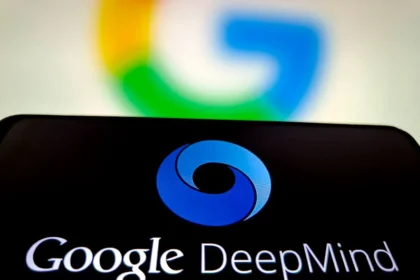The $100 billion partnership between Nvidia and OpenAI, announced Monday, marks another seismic shift in the AI infrastructure race. The deal involves nonvoting shares tied to massive chip purchases and enough computing power to power more than 5 million U.S. homes, strengthening the relationship between two of the most influential forces in artificial intelligence.
But while big players lock in billion-dollar alliances, Google Cloud is charting a different course. Its focus is on nurturing the next generation of AI startups before they grow too big to court.
Francis deSouza, Google Cloud’s Chief Operating Officer, brings a unique vantage point to the strategy. A former Illumina CEO and co-founder of AI alignment startup Synth Labs, deSouza now leads Google Cloud’s AI push. He cites figures that illustrate Google’s dominance: nine of the world’s top 10 AI labs run on Google’s infrastructure, nearly all generative AI unicorns rely on Google Cloud, and the company has secured $58 billion in new revenue commitments for the next two years, more than double its current run rate.
“AI is resetting the cloud market, and Google Cloud is leading the way, especially with startups,” deSouza told TechCrunch.
The competitive landscape is intensifying. Microsoft’s $1 billion investment in OpenAI has ballooned to nearly $14 billion, Amazon has poured $8 billion into Anthropic, and Oracle secured a $30 billion deal with OpenAI alongside a staggering $300 billion five-year commitment beginning in 2027. Meta has also inked a $10 billion deal with Google Cloud, while preparing $600 billion in infrastructure investments through 2028.
Rather than chasing mega-deals, Google Cloud is targeting smaller, fast-growing companies like Lovable and Windsurf. Through its startup programs, Google offers $350,000 in cloud credits, technical guidance, and go-to-market support, alongside a full-stack AI infrastructure with what deSouza calls an “open ethos” that prioritizes choice and flexibility.
Recent reports also show Google expanding its AI hardware reach. Deals with companies like Fluidstack include financial backing of up to $3.2 billion for data centers featuring Google’s tensor processing units (TPUs).
This balancing act, competing in AI while providing infrastructure for rivals, has precedent. Google Cloud supplies chips to OpenAI and hosts Anthropic’s Claude model even as its own Gemini models compete directly. The company also emphasizes openness, citing contributions like Kubernetes and the foundational transformer research paper, as evidence of its commitment to industry-wide innovation.
Google Cloud’s strategy comes as regulators scrutinize its dominance. A recent federal ruling in the U.S. antitrust case against Google underscored concerns that its search monopoly could spill over into AI. By positioning itself as a partner for startups rather than a monopolistic gatekeeper, Google Cloud may be reinforcing its case with regulators while building long-term relationships with emerging AI leaders.
For Google, the bet is clear: while rivals pour billions into today’s giants, the future of AI may well be shaped by startups that have yet to reach their peak.






